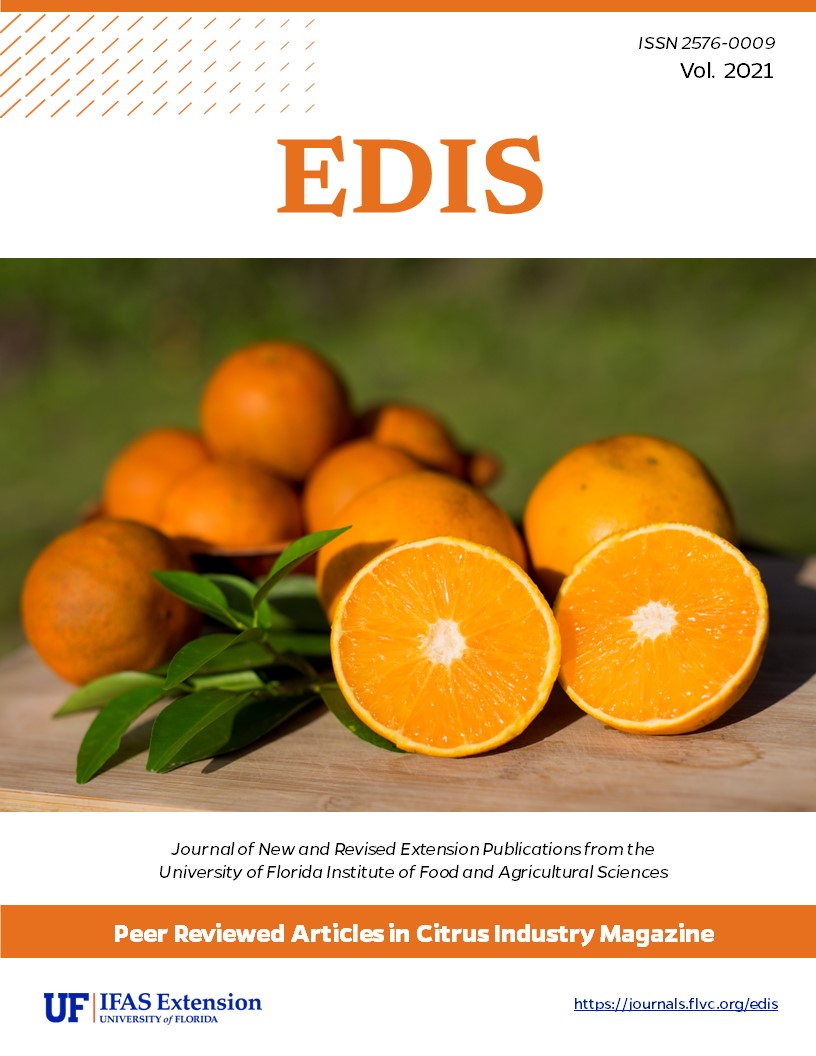Abstract
Citrus production in Florida has been decreasing over the last 15 years due to several factors, with huanglongbing (HLB) being a major driver. This disease has severe effects on citrus growth and production, including stunted vegetative growth, misshapen small fruits and poor color development, root mortality, stunted branches, excessive fruit drop, severe leaf defoliation and finally plant mortality. Nutrition plays an important role in plant defense mechanisms against multiple pests and diseases, as well-fertilized plants are less susceptible than nutrient-deficient ones. Recent evidence suggests that HLB symptoms in citrus can be reduced with a balanced nutritional program, including improved irrigation, fertigation, and nutrient management. Thus, until commercially available resistant citrus varieties or long-term chemical solutions are developed, limiting the effects of HLB by focusing on nutrient management can help keep commercial growers in production. In this paper we highlight results of the research conducted on the Ridge and Flatwoods sites to evaluate the effect of macronutrient and micronutrient fertilization on fruit yield, juice quality and root health.

